Progarchives.com has always (since 2002) relied on banners ads to cover web hosting fees and all.
Please consider supporting us by giving monthly PayPal donations and help keep PA fast-loading and ad-free forever.
/PAlogo_v2.gif) |
|
Post Reply 
|
Page 123> |
| Author | ||
The.Crimson.King 
Forum Senior Member 
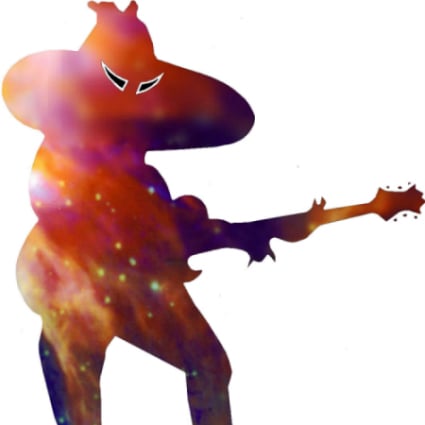
Joined: March 29 2013 Location: WA Status: Offline Points: 4591 |
 Topic: How to learn guitar Topic: How to learn guitarPosted: April 03 2016 at 16:19 |
|
It really depends on what feeling you're after. If you want to remain rooted in one scale, you should try to choose a scale that encompasses the roots of the chords that will be changing underneath it. For example, soloing in C major will sound pleasing over the C major diatonic chords (C, dm, em, F, G7, Am, Bdim, C - in other words the chords that are made up of strictly the notes of the C major scale) because the notes in C major all correspond to the roots-3rds-5ths-7ths of those chords. In other words, every note you play in C major will somehow directly relate to the diatonic chords underneath. Soloing in Am (or the more abbreviated A minor pentatonic scale) over those same chords will give you that rock/blues feel that is so pleasing. Basically for the same reason, the notes in A minor pentatonic (or Am) all relate to the C major diatonic chords moving underneath but in a different twist. You can also get really advanced in choosing a scale by incorporating modes, but that's a more advanced theory discussion. Actually, playing the A minor pentatonic scale over C chords is playing the Aeolian mode so playing the blues is actually more theory literate than anyone imagined. Zappa was known to play extended solos in the Lydian mode, often whether it was related to the chords underneath or not  So what to do if you're trying to solo over a chord progression that features chords outside the diatonic scale underneath? That's the million dollar question! There are many approaches. When that non diatonic chord comes up, you can jump out of your scale and emphasize the root or any note of that chord...returning to your scale when the chord moves to the next. You can ignore the change and find something in your scale that feels dissonant in an interesting way. Or you can go full on advanced theory mania as guys like Steve Vai, Joe Satriani, Yngwie etc do and say, "this chord is actually the 2nd of the Phrygian mode with a flat 7th so I'll play a D dorian over this chord and resolve to an A mixolydian here blah blah blah." That stuff just makes my head spin so I don't go there. Simply put, just experiment! Play, Play, Play! That's why Band-in-a-Box is so great...you can quickly setup a chord progression that will repeat until Armageddon if you like, change it up...does the C major scale still work for you if you play it over C, F, and Gm? If not, why? Try the C pentatonic scale over a diatonic chord progression in F#. Do you like it? If not just slide your scale around until you find something that speaks to you. Above all, remember Frank Zappa's advice, "The ultimate rule ought to be: if it sounds GOOD to you it's bitchin'. If it sounds BAD to you, it's sh*tty"  Have fun! Dennis
Edited by The.Crimson.King - April 03 2016 at 16:20 |
||
 |
||
DDPascalDD 
Forum Senior Member 
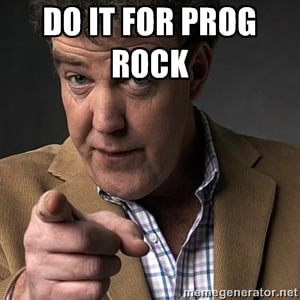
Joined: August 06 2015 Location: The Netherlands Status: Offline Points: 856 |
 Posted: April 03 2016 at 15:35 Posted: April 03 2016 at 15:35 |
|
|
^I know and yes, it sounds fairly cliche. I try to use it as a "bridge" only, but it's hard to never use it.
|
||
 |
||
pitfall 
Forum Senior Member 
Joined: June 22 2012 Location: Essex, England Status: Offline Points: 109 |
 Posted: April 03 2016 at 15:06 Posted: April 03 2016 at 15:06 |
|
|
Like the "blues scale", the minor and major pentatonics have been run into the ground by overuse.
Everyone tends to use them, but the better the player, the less they use such cliches. Go into any guitar shop on a Saturday and 90% of what you hear will be minor pentatonics.
|
||
 |
||
DDPascalDD 
Forum Senior Member 

Joined: August 06 2015 Location: The Netherlands Status: Offline Points: 856 |
 Posted: April 03 2016 at 10:57 Posted: April 03 2016 at 10:57 |
|
|
^Yeah I know the minor pentatonic and blues scale, and it us indeed easy to learn and makes it simple to sound very cool. But now mastering it...
  I'll try Band-in-a-Box, only one question. If you solo over different chords, do you keep using a scale over the tonic? |
||
 |
||
The.Crimson.King 
Forum Senior Member 

Joined: March 29 2013 Location: WA Status: Offline Points: 4591 |
 Posted: April 03 2016 at 10:13 Posted: April 03 2016 at 10:13 |
|
If you want to specifically learn how to solo on guitar, I would start with learning the pentatonic (or blues) scale. It's a simple pattern (with a couple variations) that you can easily move anywhere on the neck to play in different keys. And as the saying goes, playing blues guitar takes a minute to learn and a lifetime to master. There are tons of examples on the net (just search for "pentatonic scale guitar") including youtube videos that will show you exactly how it works. Next, I'd suggest a program like Band-in-a-Box which is a wonderful learning tool. You can easily setup your "backup band" to play a I-IV-V progression in seconds then use the pentatonic scale to solo over it until you eventually fall over from exhaustion  The biggest thing that opened up the world of guitar soloing for me back in 1980 was when I bought a book and learned the pentatonic scale. And just because it's known as a "blues" scale doesn't mean it's limited to the blues. When you hear Gary Green or Steve Howe ripping those fantastic rocking solo's back in the 70's, the basis of those are the pentatonic scales. Best of all, nowadays with the resources of the internet, you don't need a book and will find youtube ready and willing to be your guitar teacher any time of the day or night. Best of luck and rock on
 |
||
 |
||
HackettFan 
Forum Senior Member 
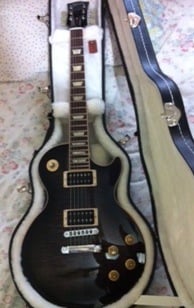
Joined: June 20 2012 Location: Oklahoma Status: Offline Points: 7946 |
 Posted: April 02 2016 at 11:34 Posted: April 02 2016 at 11:34 |
|
|
I recommend keeping time by tapping your tongue to the roof of your mouth. Callouses are the most thing! It should only take a couple weeks for callouse to emerge. Don't use moisturizing soap! Don't play straight after getting out of the shower.
|
||
|
A curse upon the heads of those who seek their fortunes in a lie. The truth is always waiting when there's nothing left to try. - Colin Henson, Jade Warrior (Now)
|
||
 |
||
Davesax1965 
Forum Senior Member 
Joined: May 23 2013 Location: UK Status: Offline Points: 2826 |
 Posted: April 01 2016 at 09:47 Posted: April 01 2016 at 09:47 |
|
|
Good point about the keyboard players' feet, never thought of that.
If you get used to tapping on the beat with your feet, you feel the music much more than with a ticky-tick metronome. And it's all about feeling the music. It used to be that I could keep time with my right leg, but if I used my left, my timing was off. ;-) As a PS yes, your fingers will initially hurt. This is normal. So go owwwww and feel that warm glow associated with doing that bit right. ;-) Good job you're bending strings. Lots of guitarists, sorry, "guitarists".... don't. They think they can get away without doing so. Uh uh. The point about learning an instrument is that there is a price to pay, whether in time, money or pain, to get to a certain point. You're paying in pain and some frustration at the moment. This, again, is normal. You'll find lots of musicians, sorry, "musicians" who expect there's some kind of magic short cut. This is like picking up a Japanese dictionary and thinking there's a magic way to learn to speak fluent Japanese in two weeks. Some magic formula which unlocks everything. Yeah, well. Right. ;-) Dean is 100% right in that there are no hard and fast rules about how to record a song and in what order. It's whatever works, and that comes with experience, and occasionally, at 3 in the morning when you have the idea for a guitar riff, drum break, nose flute solo, whatever. It's all personal. I come up with a riff which drives a song or a chord progression which leads to ideas, or hear a drum pattern which starts something off, and it all goes from there. Don't worry about it, it sorts itself out. ;-) You'll notice there are composers' threads on this board - "how to do it" - and I don't subscribe to the idea that there is a set way to compose or record or play music, as that generally produces .... formulaic pieces. It's all about inspiration and intuition. That comes with practice and experience. Oh yes, really, there are no teachers for this kind of thing. There are people who can show you ideas and techniques, but the only person who will really teach you anything - by repetition, practice, trial and error.... is you. Most people think learning an instrument is a set task, you do A, you do B, you've learnt to play. It's not like that. It's an evolutionary process where you can go as deep or as shallow as you want to. But you WILL get there, with the correct attitude. And a lot of bloody minded determination. And good luck. ;-) Edited by Davesax1965 - April 01 2016 at 10:03 |
||
|
|
||
 |
||
Dean 
Special Collaborator 

Retired Admin and Amateur Layabout Joined: May 13 2007 Location: Europe Status: Offline Points: 37575 |
 Posted: April 01 2016 at 05:48 Posted: April 01 2016 at 05:48 |
|
There are no hard and fast rules here. Though usually rhythm tracks are recorded before any melody tracks, then lead and solos are recorded last. If your piece has rhythm guitar then record that early as it is a guide for everything else and acts as "a place-keeper" for verse, chorus and bridge sections. As odd as it sounds the rhythm guitar is sometimes more useful as "the time-keeper" than the drum or bass so recording a rhythm guitar guide track before recording the drum track can be an advantage .. or having the rhythm guitarist play along while recording the drums (or bass) just to keep the drummer (or bassist) on course. If you are not using a real drummer then obviously that's unnecessary. /edit:
That's probably because as a piano player your feet are used on the pedals so are not used to keeping time. Guitarists feet don't do a great deal (except stomp on fx pedals) so can be used to mark time more effectively - more so than drummers even as they use their feet to play kick drum and high-hat so don't maintain a steady on-the-beat tapping.
Edited by Dean - April 01 2016 at 05:59 |
||
|
What?
|
||
 |
||
DDPascalDD 
Forum Senior Member 

Joined: August 06 2015 Location: The Netherlands Status: Offline Points: 856 |
 Posted: April 01 2016 at 05:33 Posted: April 01 2016 at 05:33 |
|
|
Reminding you that this advice is extremely helpful!
I'm trying to practice most as I can, it seems better to just practice a lot than keep asking how to practice exactly. Although I've been playing for a while especially my hand on the fretboard hurts quite quickly, just a few bends and the skin wants to leave my finger... Tapping with my feet is indeed probably way better, I tended to not use it at first; I find it distracting but probably I'll need to just get used to it. This might be actually the reason of my timing-problem! Oh and by the way, I never used a metronome anyway (I wasn't clear I think). Do you think it's best to first record every other instrument and then guitar?
|
||
 |
||
Dean 
Special Collaborator 

Retired Admin and Amateur Layabout Joined: May 13 2007 Location: Europe Status: Offline Points: 37575 |
 Posted: April 01 2016 at 04:45 Posted: April 01 2016 at 04:45 |
|
I asked a guitarist friend what was the best advice he was ever given and his reply was "keep tapping your foot"
|
||
|
What?
|
||
 |
||
Dean 
Special Collaborator 

Retired Admin and Amateur Layabout Joined: May 13 2007 Location: Europe Status: Offline Points: 37575 |
 Posted: April 01 2016 at 04:33 Posted: April 01 2016 at 04:33 |
|
|
I'm probably the worse person to give advice on playing the guitar because after owning guitars for 50 years and extensive one-on-one lessons with a very good guitar tutor I still cannot play the damn thing. For some reason the fingers on my left hand lack the necessary dexterity (and "memory"), and following a motorcycle accident as a teen my right hand is not as flexible as it should be so strumming is also difficult. (I know, this is a poor excuse - just look at Django Reinhardt  ) )
...truest statement ever made about learning an instrument. Learning to playing the guitar really hurts, especially as your finger-tips haven't become hardened and calloused. In the beginning you'll find that the pain comes long before any fatigue so the important thing is not to be brave and fight through the pain as that can lead to blisters and cuts, even though the rest of your body wants to keep playing. Either of those two injuries can stop you playing for days while they heal and that puts you back to square-one when you start again. Therefore don't practice for long stretches but break them up into shorter periods with rest intervals to recover, four half-hour practices a day are better than a continuous two-hour one. Also, as a beginner you'll be pressing down on the strings far more than you need too and that increases the pain and limits how long you can practice for. I found that not only were my fingertips suffering as a result of this, I developed aches in all the joints in my hand, especially in the thumb. My tutor helped a lot here, advising me to ditch the Fender Squier I was playing because the D-profile of the neck was too deep for me, he also advised on the type of strings to buy, how to set up the guitar with the right action (height of the strings above the fretboard) and recommended replacing the strings frequently and cleaning every time them before playing. Simply changing guitar was a remarkable improvement, the thinner neck meant I wasn't gripping as tightly and my fingers weren't over-reaching, I was still pressing too hard on the strings but he said that would only improve with time and practice. Alas it never did and regardless of how much I practised my playing remained wooden and unpleasant to listen too. Some people are not cut out to be guitarists and sadly I'm one of them.
And mine too.
 |
||
|
What?
|
||
 |
||
Davesax1965 
Forum Senior Member 
Joined: May 23 2013 Location: UK Status: Offline Points: 2826 |
 Posted: April 01 2016 at 02:31 Posted: April 01 2016 at 02:31 |
|
|
Throw the metronome out of the window.
Beginners make the mistake of learning to rely on the metronome, rather than listening to the music. You can't do both. The only time a metronome might come in useful is if you're playing without reference to any other instrument and need to keep time. Metronomes are made to be sold by companies to beginner musicians who think they need metronomes, as the company has told them they do. Keeping time with a band is an acquired skill. It comes with practice. Half listen to the drummer. Half listen to everything else. Feel the music and relax. Don't worry about being slightly off beat, file under "syncopation". Not everything - if you're a guitarist - has to be on beat. This is music, not precision engineering. The sticky out thing on your leg is a foot. Learn to tap it. That is an acceptable substitute.
Edited by Davesax1965 - April 01 2016 at 02:33 |
||
|
|
||
 |
||
Meltdowner 
Special Collaborator 
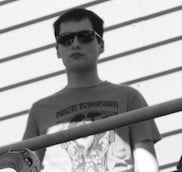
Honorary Collaborator Joined: June 25 2013 Location: Portugal Status: Offline Points: 10215 |
 Posted: March 23 2016 at 09:11 Posted: March 23 2016 at 09:11 |
|
|
Try to play more softly and don't think much about what you're playing.
|
||
 |
||
DDPascalDD 
Forum Senior Member 

Joined: August 06 2015 Location: The Netherlands Status: Offline Points: 856 |
 Posted: March 23 2016 at 08:49 Posted: March 23 2016 at 08:49 |
|
|
Let's put a link so you can hear it. This is about the best I can get it, start at 2:47 : https://soundcloud.com/pascal-dool/03-how-many-eau-clog/s-4kJca
|
||
 |
||
DDPascalDD 
Forum Senior Member 

Joined: August 06 2015 Location: The Netherlands Status: Offline Points: 856 |
 Posted: March 23 2016 at 08:44 Posted: March 23 2016 at 08:44 |
|
|
I think the software is right, it's more like many notes are a tad too late or early. It's very annoying if you can't get it right enough to liking. Of course I have to practice and improvise a lot; but what is a good way of practicing to improve my timing?
|
||
 |
||
Meltdowner 
Special Collaborator 

Honorary Collaborator Joined: June 25 2013 Location: Portugal Status: Offline Points: 10215 |
 Posted: March 22 2016 at 18:52 Posted: March 22 2016 at 18:52 |
|
|
^^ I don't know if that's the case, but I used to have that kind of problem with recordings and I thought I couldn't play right but it was the recording software that was slow and added some delay. I changed the software and it was fine.
It's funny, I've been playing the guitar for 13 years (and constantly learning) but I'm spending a lot of time with keyboards lately. Like with any instrument, it requires a lot of practice and patience to become good and despite some very useful advice here, I believe there's more than one way to learn it. For me it's mainly learning songs from other artists (mostly by ear and not note by note) and going to concerts... and then assimilate the knowledge and improvise, improvise, improvise  Practicing scales "up and down" is useful in the beginning, to find your way in the fretboard but after a while I think it's pointless. Nowadays, when I learn a new scale I study the progression and improvise. Practicing scales "up and down" is useful in the beginning, to find your way in the fretboard but after a while I think it's pointless. Nowadays, when I learn a new scale I study the progression and improvise. |
||
 |
||
pitfall 
Forum Senior Member 
Joined: June 22 2012 Location: Essex, England Status: Offline Points: 109 |
 Posted: March 22 2016 at 17:36 Posted: March 22 2016 at 17:36 |
|
|
I don't believe in "tricks" when it comes to becoming a better musician.
It's really just about hard work and focus. Recording to a regular pulse isn't 'boring', it's a skill that needs to be learnt, in the same way that playing outside of a fixed rhythm has to be learnt in order to do it well.
|
||
 |
||
DDPascalDD 
Forum Senior Member 

Joined: August 06 2015 Location: The Netherlands Status: Offline Points: 856 |
 Posted: March 22 2016 at 15:17 Posted: March 22 2016 at 15:17 |
|
|
^Thanks so much. I really need to pick up on learning guitar, not a lot of time lately but I really want to play better.
One thing that is extremely annoying is my timing, it's crap. Over all the years that I've played piano and other instruments, I've played 85% totally solo (practicing at home mostly or on stage solo), 10% with other people (lots of different formations) and 5% "studio" (in my bedroom, but recording for songs that I make). Therefore I developed a timing which doesn't fit with a metronome. Let me make my point clear, if you hear a pianist playing Chopin, the tempo moves up and down whole the time, that's how it should kind of. Now, I don't want to record with a frustrating metronome in my ears (makes it to robotic and not "free" enough) but timing every instrument perfectly is almost undoable for me. How can I fix this? Are there any tricks perhaps? BTW, it's not any problem when playing "live" in a group, just recording over other self-recorded tracks.
Edited by DDPascalDD - March 22 2016 at 15:19 |
||
 |
||
Davesax1965 
Forum Senior Member 
Joined: May 23 2013 Location: UK Status: Offline Points: 2826 |
 Posted: March 21 2016 at 04:47 Posted: March 21 2016 at 04:47 |
|
|
CStack is right, there.
Regarding learning guitar. I play sax, guitar, bass, flute and keyboards. Been playing 40 years. My best advice about learning a musical instrument is this: get an MP3 player. Immerse yourself in music of all tastes. Listen to the music, play along with it in your head and then on an instrument. After a LONG time, you will develop all the skills needed to improvise and will have an enormous back catalogue of ideas in your subconscious to call on. That's what takes a long time in becoming a musician. There are several stages. In the first stage, you are constrained by the physical limitations of learning to play the instrument. After you get over that, you are then constrained by an adherence to the music - ie., you've immersed yourself in tab and can't think without it, you have no ideas of your own. Throw the tab or sheet music away. Third stage. You begin to learn to improvise and this means a lot of time and mistakes. Fourth stage, you just play. An idea automatically pops up and comes out of the instrument. It takes quite some time to get there. Equipment. Most novice musicians fall into the trap of trying to compensate for lack of skill by buying equipment. They simple must have guitar X, with capacitor Y's in it, they must use these strings, this amp and this tuner. Guitarists are especially prone to this. Truth be told, 95% of guitarists can't play beyond tab or strumming a few simple chords. Not many improvise. You can sit in a music shop all day and hear one or two people doing something new or novel. Pretty poor figures. Avoid music forums as much as you can, for example, the Moog one is just nasty and most guitar forums are full of unpleasant people telling you you must do this or that and that they're subtly better than you. NO amount of equipment is a substitute for skill. Practice Ginger Baker practices drums for 30 minutes a day. His argument is that musicians fall into the trap of overpractising one riff or beat. Scales are like times tables. Know them ? Stop practicing them, or you will fall into the trap of "scales go up and then down" - I've known people who just practice scales for 50 years.... C D E F G A B C / C B A G F E D C . They never learn anything at all. Do NOT rely on sheet music and realise that it's not the scale, the scale is just the framework. Really, it's the idea which drives the music, the scale and chord progression naturally follow. All musical theory is useful in the same way that higher mathematics is useful. You don't have time on stage, when improvising, to refer to music theory. An idea comes in your head, you play it. That's all that's required. Have a nodding relationship with theory but no amount of theory will make you a musician. Ditto sheet music. Sheet music is a representation of music, not music itself. It's like saying knowing the words in a book give you the ability to write a novel. Sheet music is seen as the be all and end all to a lot of musicians: they lean on it and tab like a crutch. Take the sheet music away, they can't play Baa Baa Black Sheep. Some musician. There are 1001 other things I could come up with but..... the most important one is NEVER play to be famous or rich or make money. Play for the music. If you don't play for the music, you will produce worthless crap. Finally, be yourself. You could lock yourself in a room for 15 years and learn every single note Jimi Hendrix ever played. You could then go out and play them, oscilloscope perfect. And guess what ? You would produce nothing of any worth whatsoever. That makes you a guitar copyist and a fantasist, not a guitarist. Edited by Davesax1965 - March 21 2016 at 04:51 |
||
|
|
||
 |
||
cstack3 
Forum Senior Member 
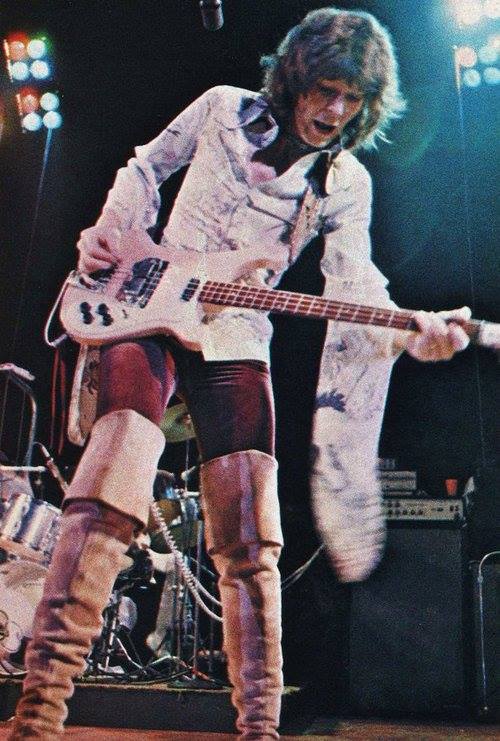
VIP Member Joined: July 20 2009 Location: Tucson, AZ USA Status: Offline Points: 6755 |
 Posted: March 21 2016 at 00:06 Posted: March 21 2016 at 00:06 |
|
Both. Gilmour is basically a blues guitarist, so learn Major and Minor chords, and the Blues scale, and you will be on your way. Most important thing is not to get frustrated, but since you are already a keyboardist, you should do OK.
|
||
 |
||
Post Reply 
|
Page 123> |
| Forum Jump | Forum Permissions  You cannot post new topics in this forum You cannot reply to topics in this forum You cannot delete your posts in this forum You cannot edit your posts in this forum You cannot create polls in this forum You cannot vote in polls in this forum |